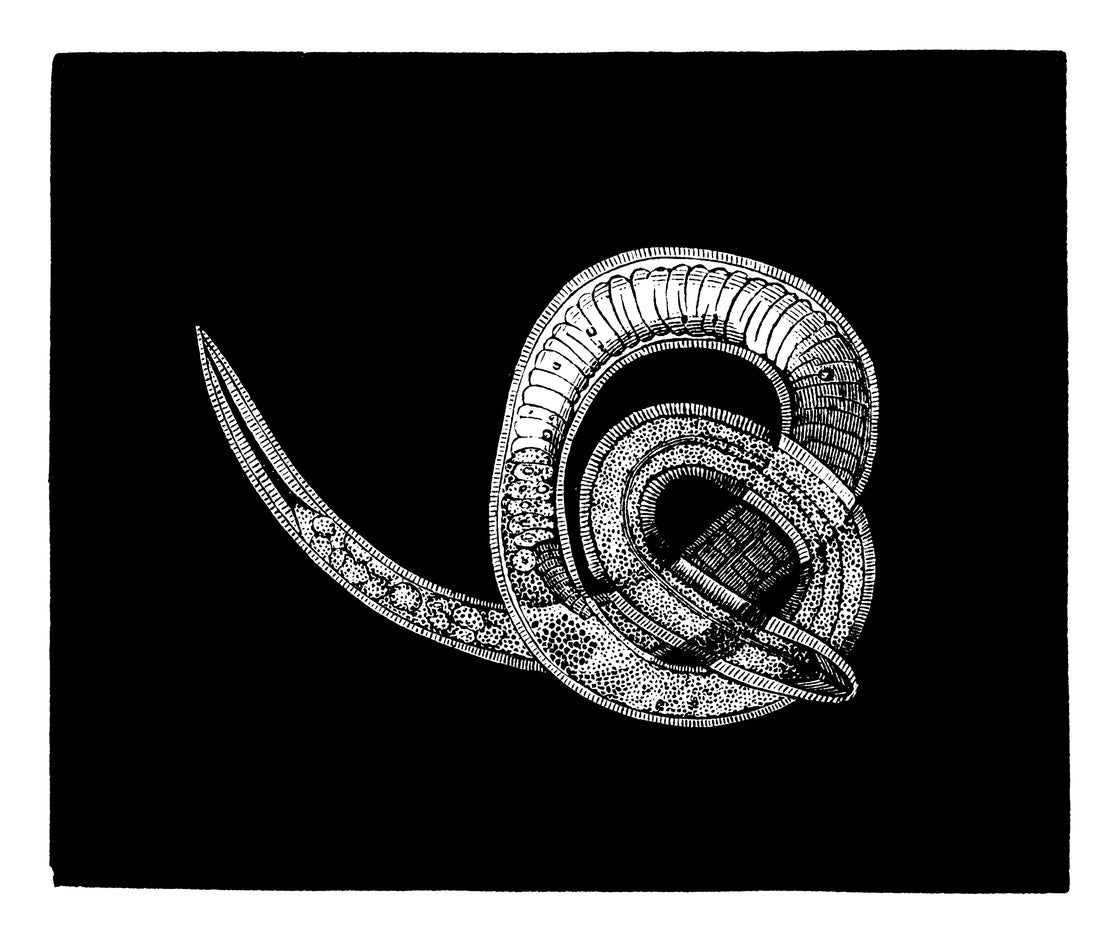In 2022, six people at a family reunion became infected with a parasitic worm known as “brain worm” after eating undercooked black bear meat or food contaminated with the meat. The Centers for Disease Control and Prevention (CDC) said in a new report.
In May 2022, nine family members gathered in South Dakota to share kebabs made with black bear meat and vegetables after one family member harvested the meat in northern Saskatchewan, Canada, earlier that month.
Following the advice of their hunting outfitter, the family froze the meat in a home freezer for 45 days to kill the parasites, then they thawed the meat and grilled it with vegetables, according to the CDC.
However, the meat was accidentally served undercooked, and several months later the family went to doctors and hospitals with symptoms consistent with the parasitic infection trichinellosis, also known as brain worm.
The CDC investigated after health officials reported the infections, and health officials are now advising people to cook meat to an internal temperature of at least 165°F (74°C).

Some states, such as Minnesota, require health care providers to report cases of trichinosis to the state health department.
That is exactly what health care workers did in July 2022 when a 29-year-old man visited the hospital with symptoms consistent with trichinosis, including fever, severe pain, swollen eyes, elevated white blood cell count and other abnormal test results.
It was the man’s second time being hospitalized and the fourth time he had sought treatment for symptoms that began in early July, and it was only at that time that he told medical personnel he had eaten bear meat.
Trichinellosis is Relatively rare parasitic diseases It is usually contracted by eating scarce or undercooked wild meat. Parasitic worms called roundworms infect various parts of the body, multiply and cause disease.
Bears are responsible for about 90 percent of cases in the United States.

At a family gathering in May 2022, only five of the nine family members ate bear meat, while eight ate vegetables cooked together.
People who ate the bear meat reported that they realized it was undercooked after eating it, and that because of its dark color it was hard to tell if it was cooked enough before eating it. They realized the bear meat was rare and put it back on the grill, but it was too late.
After investigation, the CDC found that six of the eight people, including the hospitalized man, had symptoms consistent with trichinellosis. Four had eaten meat and two had eaten only vegetables. They ranged in age from 12 to 62 years old, and one lived in Arizona, four in Minnesota, and one in South Dakota.
Three required treatment for trichinellosis, but the other two recovered spontaneously.
Tests of bear meat stored in a home freezer for 110 days found it contained freeze-resistant Trichinella larvae, and recipients were instructed to discard it.
The CDC recommends that the best way to prevent trichinosis is to cook meat thoroughly and to use a meat thermometer to ensure it is cooked.
Additionally, anyone handling raw meat should wash their hands with warm water and soap before preparing it and thoroughly clean any utensils used after use.



